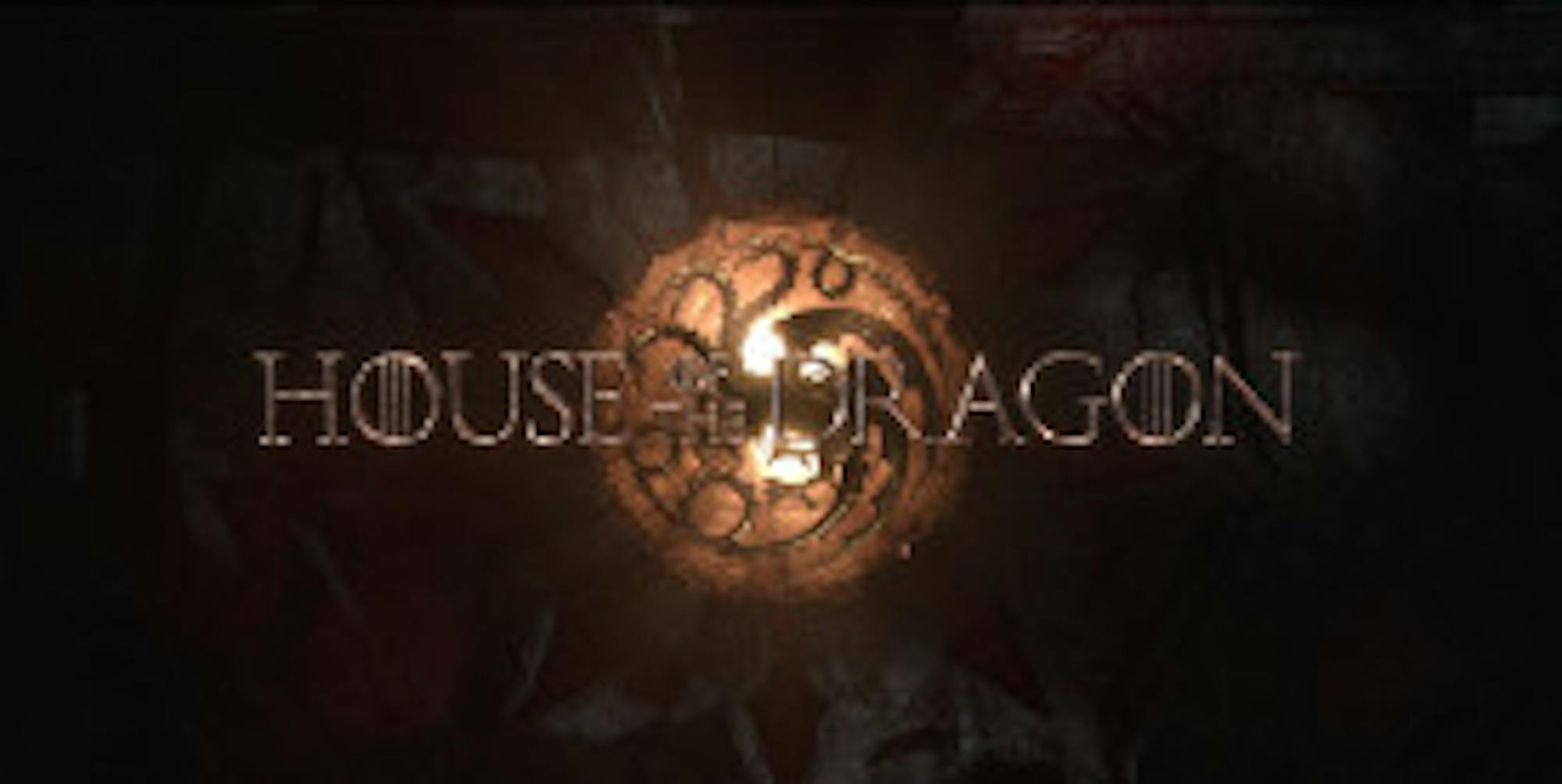The final season of “Game of Thrones” (2011-19) was not bad. For all its fumbling and all its bluntness, the way the world last left Westeros was emblematic of the environment that the show and books that inspired it created. In the show’s aftermath, the prequel show “House of the Dragon” (2022) was released in August of this year. Though the prequel seemingly tried to become “the next” “Game of Thrones” or “fix” what the original had wrong at its core, this isn’t the case. Because not only is “House of the Dragon” good, but also it has also effectively resurrected its predecessor’s cultural relevance in an expert display of craft, acting and writing.
Based on the part-prequel, part-Targaryen Dynasty recap, “Fire & Blood” (2018), “House of the Dragon” is set just over two centuries before the beginning of “Game of Thrones,” with the Targaryens at the height of their glory. Decades of peace have been ensured by the stability of King Jaehaerys I, the fourth Targaryen ruler. However, with no living male children, the king calls a council of lords in Westeros to choose who will be his successor, with two main candidates up for debate: his granddaughter Rhaenys and his younger grandson Viserys. As one may expect from a patriarchal society like Westeros, Viserys is the chosen heir. The series’ first season focuses on Viserys’ over-thirty-year reign, and the growing court’s intrigue when he then names his only child, Rhaenyra, a woman, heir to the Iron Throne.
It’s not hard to see the initial themes this season wants to examine. Like its predecessor, “House of the Dragon” takes a hard look at the patterns of abuse and neglect that have perpetuated Westeros’ numerous conflicts but this time with a heavy focus on the role of women. All female characters in this season who manage to achieve some level of power only reach for and hold onto it through their relationships to men. Rhaenyra is only chosen as heir because she has no other siblings at the time. Alicent Hightower, Rhaenyra’s closest friend, is slowly pushed by her father — played by the devilishly hateful Rhys Ifans — into a political game in which she has no agency for herself. Rhaenys is constantly called “the queen who never was.” These women of Westeros, the tragedies that befall them and the defiance of a world that seems designed to keep them in cages are both excellent precursors to the likes of Cersei Lannister and Daenerys Targaryen, and the tragedies that inevitably await them as they are pulled further into the great game of Westeros.
The cast, arguably given an impossible task in following up the star-studded “Game of Thrones” ensemble, is exceptional. Due to the timeframe of this season, several key characters, including Rhaenyra, her friend Alicent and others whose mere existence is a spoiler for the show, are replaced midway through with older actors which might have given way for a potential crisis of talent and recognizability. No such problems occur here. Personal standouts include the wonderful Milly Alcock and Emma D’Arcy as Rhaenyra Targaryen, Paddy Considine as the eternally bereaved King Viserys Targaryen I and the devilishly unpredictable Matt Smith as Daemon Targaryen, Viserys’ younger brother. When put alongside the masterful work of “Game of Thrones” composer Ramin Djawadi and the technical prowess of the show’s set designers, a fully defined look at an earlier Westeros comes into view.
It’s in the changes to the source material that “House of the Dragon” begins to waver a bit. Though some of its alterations are genius (specifically regarding a certain dagger Viserys keeps with him and the fate of some of the side characters), others remain questionable. The show loves to take certain key moments from the book and turn them from calculated acts of cruelty into unfortunate accidents, which is not a terrible idea in theory, but when it happens over and over again it may begin to make the viewer question how much agency these characters truly have. There’s hope that what comes next for the show will see more of the deliberate evil that defined the early seasons of “Game of Thrones,” but for now, it remains perhaps this season’s most frustrating flaw.
Whatever a viewer may have thought of “Game of Thrones,” “House of the Dragon” takes what worked best in its predecessor and builds on it impressively. What could have easily been a simple retread of “Game of Thrones” is instead a worthy addition to the lore of Westeros with great writing, brilliant performances and a fitting focus on those the original show didn’t give the time of day. Now, with an already greenlit second season and firmly established cast, the “Dance of Dragons” can finally begin.
Just remember not to get too attached.






